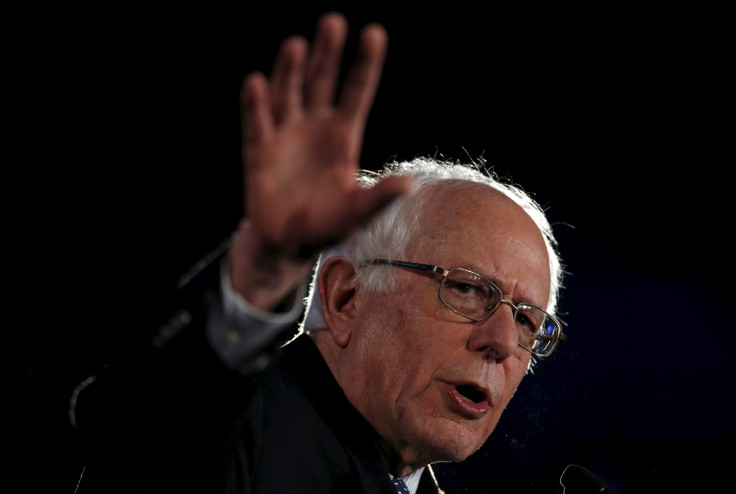Bernie Sanders vs. The Democratic National Committee: Senator Launches Petition Targeting Revoked Ban On Campaign Contributions By Lobbyists

Democratic U.S. presidential candidate Bernie Sanders launched a petition Sunday pushing back on a recent decision by the Democratic National Committee to reverse a ban on campaign contributions by lobbyists. The move ratchets up tensions between the DNC and the U.S. senator from Vermont, who commonly is viewed as an anti-establishment candidate.
Restrictions on lobbyists’ donations to campaigns were introduced eight years ago by Barack Obama, then a senator and candidate for the U.S. presidency. The DNC has been quietly rolling back the restrictions for months, although revelations about the full extent of its moves emerged only Friday.
“The DNC’s recent change in guidelines will ensure that we continue to have the resources and infrastructure in place to best support whoever emerges as our eventual nominee,” Mark Paustenbach, the committee’s deputy communications director, told the Washington Post in an email. “Electing a Democrat to the White House is vital to building on the progress we’ve made over the last seven years.”
In its petition, the Sanders campaign called the move “an unfortunate step backward,” lamenting the return of yet another stream of “big money” into politics. It lauded Obama’s decision eight years ago to ban contributions from special-interest political action committees, or PACs, and from lobbyists, calling it a “noble step.”
That description came on the heels of accusations during a debate Thursday by Sanders’ opponent in seeking the Democratic presidential nomination, former Secretary of State Hillary Clinton, that the senator had previously labeled Obama “weak” and a “disappointment” — criticisms she indicated she would expect from a Republican, not from a Democrat.
During the debate Thursday, Sanders targeted Clinton’s super PAC, saying it had received $15 million of its $25 million in contributions from Wall Street sources. In contrast, he said, “Our average contribution is $27.” Clinton responded by arguing that Sanders was “mixing apples and oranges” and that it was, in fact, possible to take donations from Wall Street and remain independent, pointing to Obama and his support of tougher regulations on big banks as proof of the concept.
After news broke of the DNC’s policy reversal, the Sanders campaign urged Clinton to criticize the committee’s change in direction. “We support the restrictions that President Obama put in place, and we hope Secretary Clinton will join us in supporting the president,” campaign representative Michael Briggs said. However, Clinton appears to have remained silent on the issue.
In an email to supporters Sunday, Sanders’ campaign manager, Jeff Weaver, pointed out the Democrats won the White House in 2008 and 2012 even with the ban on funding by lobbyists. “If we are to restore a vibrant democracy in this country, it is long past time to break the link between money and special-interest favors in politics,” he said.
As of Jan. 31, Clinton had raised more than $48 million in campaign contributions from outside groups, according to the Center for Responsive Politics. As of the same date, Sanders had raised $31,911 from outside groups, the center reported. Expunging big money from politics has been one of the pillars of Sanders’ platform.
Sanders’ campaign previously accused the DNC of sabotage and of favoring the establishment candidate, Clinton. In December, the committee cut off the Sanders campaign’s access to a voter database, after one of its staffers tapped into voter information belonging to the Clinton campaign without authorization. The committee restored access only after the campaign filed a lawsuit seeking that access, as well as damages.
© Copyright IBTimes 2024. All rights reserved.






















